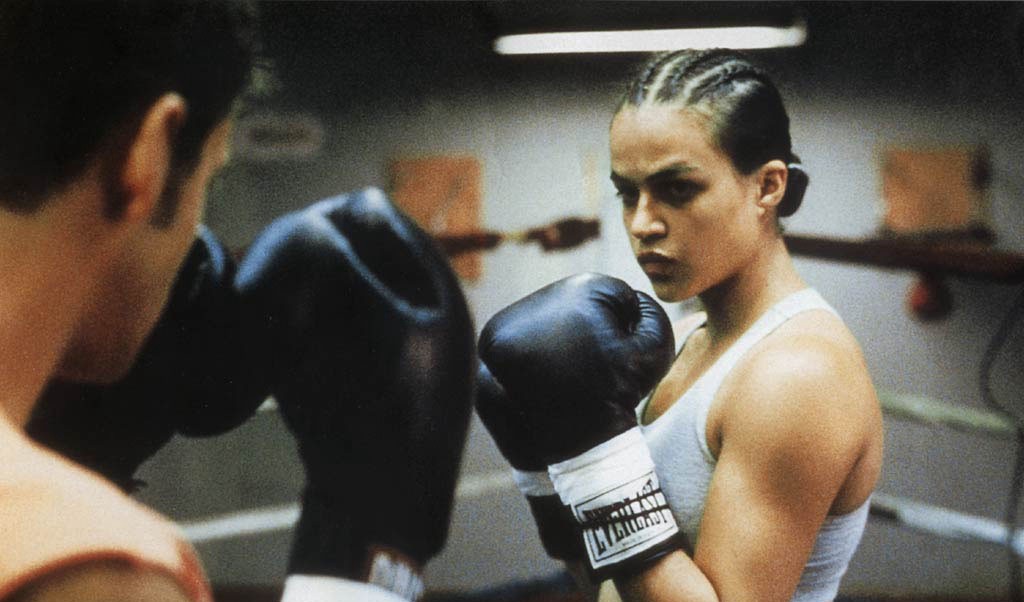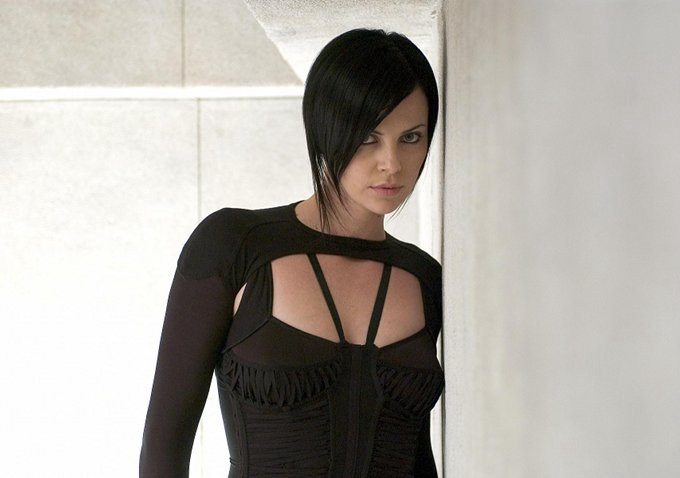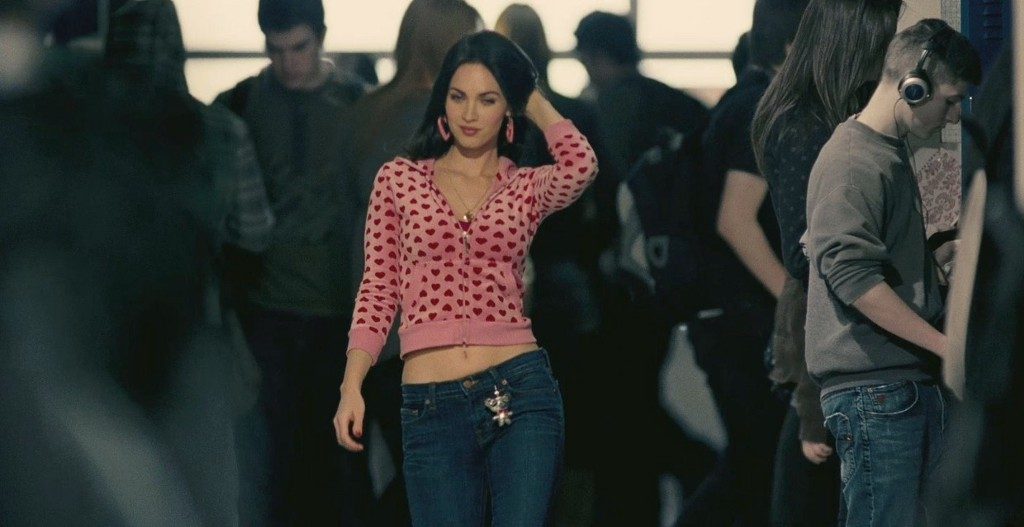
Filmmaker Karyn Kusama hit the scene at Sundance 2000 where she premiered her debut feature, “Girlfight,” before a crowd of thousands. The film, which starred a then-unknown Michelle Rodriguez as a teenage boxer from Red Hook, Brooklyn, was a major hit at the festival and instigated a fierce bidding war. Eventually Screen Gems bought the film for $3 million, and it won the Grand Jury Prize (along with Kenneth Lonergan’s “You Can Count On Me”), and Kusama won the Directing Award. To date, she is the only filmmaker to earn both honors.
Upon release, the film only grossed $1.6 million and was considered a bomb, leading to a downward spiral for Kusama’s still-young career. As a new profile in BuzzFeed points out, though “Girlfight” still made more money than Todd Haynes’ first film, “Poison,” or David O. Russell’s debut, “Spanking the Monkey,” the two male directors did not face the same challenges trying to get another film made or a directing job.
Kusama’s post-Sundance career wasn’t smooth. She suffered from the typical issues that plague many female directors: doubt from studios, sexism and “movie jail.” Of her two follow-up films, the Charlize Theron-starring sci-fi extravaganza “Æon Flux” in 2005 and the horror-comedy “Jennifer’s Body” in 2009, the latter failed to succeed at the box office but has earned a cult following, while the former was a disaster that nearly ended her career
Kusama’s latest film, her first in seven years, “The Invitation,” opened April 8 in limited release and on VOD and came in third in the specialty box office over the weekend. In anticipation, Kusama sat down with Buzzfeed for an intimate and revealing conversation about her filmography, her experiences as a female filmmaker and the industry nonsense that almost made her give up. Here’s what we learned:
Other female filmmakers inspired her to be one too:
“By the time she was 13, she was having her parents drop her off at the local art house theater, called the Tivoli, on weekends, where she would drink in a day’s worth of revival screenings. ‘I became obsessed with Warren Beatty,’ she said. ‘I could see “McCabe & Mrs. Miller,” “Parallax View,” and “Splendor in the Grass” in one day.’ Then, in the same school year, Kusama saw Amy Heckerling’s ‘Fast Times at Ridgemont High’ and Martha Coolidge’s ‘Valley Girl.’ They were a revelation. ‘I hadn’t yet seen a woman’s name so close to the main title,’ she said. ‘And all of a sudden, it was like, oh! Women do this!’ As she began actively seeking out more films directed by and about women — ‘not that there were tons to find at the time’ — she decided she would become a filmmaker, and make movies about women, too.”

She took on “regular” jobs just to get by:
After graduation from NYU’s prestigious film production program, it was 10 years before she was able to make a film. “‘Day-to-day concerns really trumped big dreams for quite a while in my life,’ she explained. ‘I was so freaked out about money. And until, honestly, I was in my early thirties and made “Girlfight,” that anxiety was a real issue: How are you going to live? How are you going to survive?’ To make ends meet, Kusama babysat and took odd jobs editing NYU student films, which led to slightly surreal encounters like Bianca Jagger asking for help cutting her documentary on Nicaragua.”
Once she had written “Girlfight,” getting the film made with a Latina lead was a challenge:
“Thus began a dispiriting multi-year process for the then-29-year-old Kusama of taking meetings with independent film companies and financiers, and hearing the same note over and over and over again. ‘Does she have to be Latina?’ Kusama repeated. ‘And also, “Can she be not just a white girl, but a vehicle for a more well-known actress?”’ And yet, even after she spent the better part of the decade with the director’s chair so distressingly out of reach, there was never any temptation for Kusama to acquiesce to their demands.”
Her post-”Girlfight” script sounds super interesting, but she couldn’t get it made:
“Kusama believed that she’d earned at least the right for her next film — a sci-fi script she’d written about a man who begins changing into a woman against his will — to be taken seriously. But, to put it mildly, it was not. ‘It was pretty interesting to have agents and managers say, “There is no way my client is going to play a character who is shedding his masculinity, and then have that role taken over by a woman. No fucking way,”’ Kusama said. One manager of a major A-list star was ‘repulsed’ by the script, especially a scene in which the man’s balls literally fall off on the bathroom floor. ‘It was kind of funny, because it’s not that challenging,’ Kusama continued, her genial voice taking on an edge. ‘But in the same way [as with] “Girlfight” [when] people said, “Can Laura Dern play this part instead?” — people said, “You know, you would have a lot more success making this if this guy would turn into a dog.”’”
She started to sense she was not being treated fairly:
“By 2003, she could not help but ask herself, What if I were male? How much easier would this be? As a female filmmaker who’d already earned a fair amount of press and plaudits, Kusama kept walking into rooms and negotiating expectations for her to be at once brash and charming, independent and humble. But men? ‘You can essentially be autistic and be male [in filmmaking],’ she said, throwing up her hands. ‘I am in some ways really attempting to really nurture my inner autistic self. But ultimately, my instinct is being an antisocial woman who maybe seems like she had a chip on her shoulder, or seems like she’d be really hard to work with, or maybe seems slightly crazy — that doesn’t seem like a good thing. But I feel like there’s a promise, this like whiff of excitement, around men who display those traits, as if there’s a secret to all of it. Women don’t get that free pass.’”

She was more prepared than her male counterparts:
When Kusama interviewed for “Æon Flux” she was certain she wouldn’t get it, but decided to sue the opportunity to experience what it was like meeting with major studio heads. “What Kusama hadn’t realized was that merely going through the motions — creating a presentation with potential storyboards and visual cues — had put her so far ahead of her competition that she’d practically landed the gig the moment she started her pitch. ‘Other directors came in like, “Ah, we’ll have Moby do some music for it. It’ll be great!”’ [screenwriter Matt] Manfredi said, rolling his eyes. ‘And that was the take. They were really impressed that Karyn was prepared.’”
A regime change at Paramount led to major changes in “Æon Flux”:
“Kusama was removed from the movie, and the studio brought in new editors to change it into something else entirely. ‘I felt like I was having, like, open-heart surgery without the painkillers,’ she said. ‘This is where gender plays a part. This is where big personalities and power and influence really make a difference. Because I just didn’t have anyone who could advocate for why it was important that they treat me better. There are so few playbooks to go by in my situation. It was kind of like I was in this primeval forest.’ Typically, when a studio takes a movie away from a director, it’s because that filmmaker’s behavior — be it indecisiveness, belligerence, wastefulness or a nasty cocktail of all three — has cost the studio considerable money. ‘I was never, like, out of control,’ Kusama said. ‘I was never wishy-washy or over-bossy. I’m actually an extremely reasonable person. And I definitely got pushed to a place where it was harder and harder for me to be reasonable. It was a little bit like, Is this what you say to all the girls?’”
“Movie Jail” is inherently sexist:
“It’s an industry term for the fate of filmmakers who helm a box office bomb, and the implication is that, eventually, you’ll be released from movie jail. But Kusama wasn’t so sure. ‘Maybe it’s supposed to sound like a rite of passage, but so few women get any opportunity to have more than just the rite of passage,’ she said. ‘Which is a big part, I think, of what we really need to be talking about when it comes to women’s careers in film. It’s the sense that each movie represents some kind of finality, potentially, to their career, as opposed to the sense of you have hits, and you have misses. That’s called being an artist. I’m very conscious of how frequently great artists in film who are male and are also generally called ‘big personalities’ get to fail.’ (Some examples: After David Fincher bombed with ‘Alien 3,’ he made ‘Seven.’ After Bryan Singer bombed with ‘Apt Pupil,’ he made ‘X-Men’. After Joss Whedon bombed with ‘Serenity,’ he made ‘The Avengers.’ Jon Favreau went from ‘Zathura’ to ‘Iron Man,’ Peter Jackson from ‘The Frighteners’ to ‘The Lord of the Rings,’ and Zack Snyder from ‘Legend of the Guardians: The Owls of Ga’Hoole’ and ‘Sucker Punch’ to ‘Man of Steel.’)”
She was disappointed in the marketing for “Jennifer’s Body”
Megan Fox’s pungent sexuality as Jennifer was front and center, and Amanda Seyfried — who played the socially pliable Anita ‘Needy’ Lesnicki, the film’s true lead — was all but ignored in the publicity materials, as was the fraught relationship between the two of them. ‘They were so uncertain about really embracing the reality of the movie, which is that it was made by women and about women, and that the ultimate goal was to make a movie for girls,’ Kusama said. ‘To see them suddenly make it a movie about Megan Fox looking hot, I was like, That’s disastrous! She seduces guys, and then she eats their intestines! How is that appealing [to teenage boys]?’ Yet again, Kusama learned a difficult lesson. ‘I see now how it is really important to push back on the poster, the trailer, the press notes,’ she said. ‘It’s really important to have that dialogue with people who are getting your movie out into the world to see if they see the same movie.’”
Since the success of “The Invitation” on the festival circuit, she’s directed more television and gotten more scripts, however…
“‘Today, I read eight scripts that I’d been sent in the past two weeks. And of those eight scripts, six had scenes in which a man murders a woman. Three of those scripts, it’s his wife,’ she said. ‘Like, oh my god, a girl or a woman is getting beaten to death or murdered somehow, often for sport, and we’re supposed to just feel that as an unfortunate harsh reality of the world. … It’s the stories that also need to change.’”
[via BuzzFeed]






